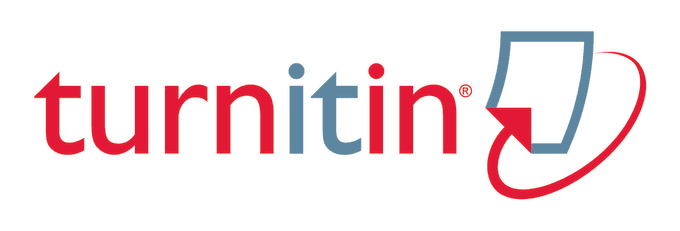Digital Gathering Spaces: An Exploration of A Facebook Community For TKI/TKW Riyadh dan Jeddah Saudi Arabia And Stories It Reveals
DOI:
https://doi.org/10.37535/101010220233Abstract
Communities on social media have become a platform to connect and interact with individuals with the same interests among a variety of groups as well as a forum for interaction to discuss topics aligned with the interests of diverse parties. For Indonesian migrant workers (TKI) in Saudi Arabia, the Facebook community serves as a social media outlet to present and address the issues they encounter. This study aims to investigate the interactions between TKI/TKW and the issues addressed within the Facebook community and examine their stories in digital space. This research employs a qualitative approach with netnography methods. The primary source is the Facebook community of TKI/TKW in Riyadh and Jeddah, Saudi Arabia, and supporting sources are derived from literature studies. The findings revealed that the Facebook community for TKI/TKW in Saudi Arabia is a mechanism for these individuals to share information, obtain emotional support, and provide solutions for TKI/TKW who encounter problems in a way that is understandable to them. As observed where numerous cases of TKI/TKW depict the mistreatment of these domestic workers or stories of troubled migrant workers, the findings reveal that the stories about the obstacles and problems that arise are largely caused by illegal migrant worker. Other findings reflect a single-story narrative does not represent the actual condition of TKI/TKW in Saudi Arabia, more stories are to be revealed. The existence of a Facebook community for TKI/TKW in Saudi Arabia can be a highly advantageous community for its member.
References
Addeo, F., Delli Paoli, A., Esposito, M., & Ylenia Bolcato, M. (2019). Doing Social Research on Online Communities: The Benefits of Netnography. ATHENS JOURNAL OF SOCIAL SCIENCES, 7(1), 9–38. https://doi.org/10.30958/ajss.7-1-1
Al-Saggaf, Y., & Williamson, K. (2004). Online Communities in Saudi Arabia: Evaluating the Impact on Culture Through Online Semi-Structured Interviews. http://www.qualitative-research.net/fqs/
Bales, R. F. (2012). Social Interaction System (2nd ed.). Transaction Publishers.
Bowler, G. M. (2010). Netnography: A method specifically designed to study cultures and communities online. Qualitative Report, 15(5), 1270–1275. https://doi.org/10.46743/2160-3715/2010.1341
Cárdenas, D., & de la Sablonnière, R. (2020). Participating in a new group and the identification processes: The quest for a positive social identity. British Journal of Social Psychology, 59(1), 189–208. https://doi.org/10.1111/bjso.12340
Dover, Y., & Kelman, G. (2018). Emergence of online communities: Empirical evidence and theory. PLoS ONE, 13(11). https://doi.org/10.1371/journal.pone.0205167
Jahan, N., & Kim, S. W. (2021). Understanding online community participation behavior and perceived benefits: a social exchange theory perspective. PSU Research Review, 5(2), 85–100. https://doi.org/10.1108/PRR-12-2019-0036
Kementrian, K. (2021, November 24). Kita Harus Memahami Cara Kerja Ruang Digital. Kontan.
Kozinets, R. V, & Gambetti, R. (2020). Netnography Unlimited. In Netnography Unlimited. Routledge. https://doi.org/10.4324/9781003001430
Little, W. (2016). Introduction to Sociology (2nd ed.). BCcampus.
Lüders, A., Dinkelberg, A., & Quayle, M. (2022). Becoming “us” in digital spaces: How online users creatively and strategically exploit social media affordances to build up social identity. Acta Psychologica, 228. https://doi.org/10.1016/j.actpsy.2022.103643
Mapelli, G. (2019). The identity construction of migrants on facebook. Languages, 4(3). https://doi.org/10.3390/languages4030052
Mintarsih, A. (2019). Digital gathering spaces. Migration, Mobility, & Displacement, 4(Spring).
Naurah, N. (2023, February 14). Daftar Platform Media Sosial yang Paling Banyak Digunakan 2023, Facebook Juaranya. Goodstats.
Rainie, L., Anderson, J., & Albright, J. (2017, March 29). The Future of Free Speech, Trolls, Anonymity and Fake News Online. Pew Research Center.
reddit, & globalwebindex. (2019). The era of We.
Ridha, M. (2022, November 14). Mewujudkan Ruang Digital yang Sehat. Detiknews.
Rizkinaswara, L. (2021, September 16). Menkominfo: Ruang Digital Harus Bermanfaat. Kominfo.
Sachdeva, R. (2021a, August 14). Digital gathering spaces for marginalized groups help spur connections during pandemic. The Canadian Press.
Sachdeva, R. (2021b, August 14). Digital gathering spaces for marginalized groups help spur connections during pandemic. The Canadian Press. https://www.cbc.ca/news/canada/toronto/digital-gathering-spaces-1.6141181
Van Dijk, J. A. G. M., & Hacker, K. L. (2018). Internet and Democracy in the Network Society (1st ed.). Routledge.
Wahyudi, I., & Allmark, P. (2020). Indonesian migrant workers in Hong Kong: Smartphone culture and activism Buruh migran Indonesia di Hong Kong: Budaya ponsel pintar dan aktivisme.
Wijaya, S. (2016). Empowerment in online communities: An investigation of Indonesian migrant domestic workers. Queensland University of Technology.
Wu Song, F. (2009). Virtual Communities: Bowling Alone, Online Together (Digital Formations) (First). Peter Lang Publishing Inc.
Downloads
Published
How to Cite
Issue
Section
License
Copyright (c) 2024 Niyu, Marcelyn Anthony

This work is licensed under a Creative Commons Attribution-NonCommercial 4.0 International License.
Bagi artikel yang dimuat di Jurnal Communicare, berlaku aturan Hak Cipta sebagai berikut:
- Jurnal Communicare adalah pemegang hak untuk mempublikasikan artikel untuk pertama kalinya.
- Penulis tetap memegang hak cipta atas karya tulis yang terbit di Jurnal Communicare, dan dapat menggunakan karyanya dengan bebas, selama tidak melanggar peraturan.
- Karya yang dimuat di Jurnal Communicare berada dibawah lisensi Creative Commons Attribution 4.0 International License















